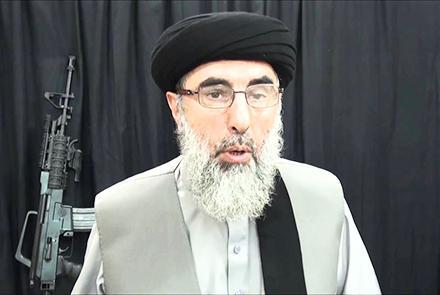Members of Hizb-e-Islami will not lay down their arms under the peace deal with the government, but will dissolve its military wing, a top negotiator for the group, Amin Karim, said on Sunday.
The disarmament of Hizb-e-Islami members was not part of the peace agreement, said Karim, but cautioned that the presence of these weapons could have implications in the long term.
“Arms have been laid down and a ceasefire is in place, but handing over the weapons was not discussed in the peace deal but instead its notes the dissolution of the armed wing. It is impossible that the Muajahdedeen of Hizb-e-Islami lay down their arms in a place where they are threatened by those who are still willing to continue the war and the bloodshed,” said Amin.
In response to Karim’s statement, meanwhile the Afghan Ministry of Defense (MoD) has hit out over the assertions, saying government will not recognize a group which is involved in military activities.
“The laws of the Islamic Republic of Afghanistan do not recognize any military movement, the agreement clearly states that those who are joining the peace process must lay down their arms and hand them over to the government of the Islamic Republic of Afghanistan,” said MoD spokesman Mohammad Radmanish.
This new development takes place a day after the UN sanctions committee announced that it had decided to remove the Hekmatyar’s name from the blacklist.
Under the peace deal, Hizb-e-Islami committed to endorse the Afghan constitution, cut off its relations with other militant groups and denounce violence.
Hizb-e-Islami so far has not declared the exact number of its fighters in the country, but there is speculation that the group’s members are still operating in some regions across the nation.
“If Mr. Hekmatyar’s return to his country did not lead to the establishment of an Islami system, we agree on that, but we continue our struggles for the sake of Allah; we will not agree with anyone unless there is an Islamic system in place,” said Mirwais, a Hizb-e-Islami commander in Baghlan province.
“The illegal arms and illegal persons who are holding arms are posing serious threats to Afghanistan,” said military expert Atiqullah Amarkhail.
In addition, some Hizb-e-Islami commanders have urged the Afghan government to integrate its armed members into the ranks of Afghanistan’s National Security Forces (ANSF).
“There are other Mujahedeen elements in various provinces especially in the north who are armed and they are known as illegal armed groups, so the government must use them,” said Abdullah Nahzatyar, a member of Hizb-e-Islami in Baghlan.
Back in September, the Afghan National Unity Government (NUG) under President Ashraf Ghani and CEO Abdullah Abdullah signed a peace deal with the Hizb-e-Islami, paving the way for the return of Hekmatyar after years of hostilities against the government.

